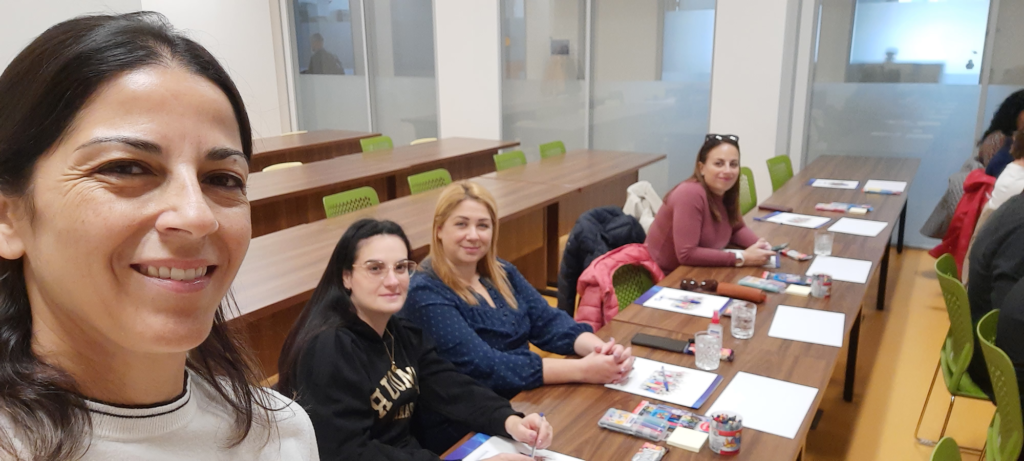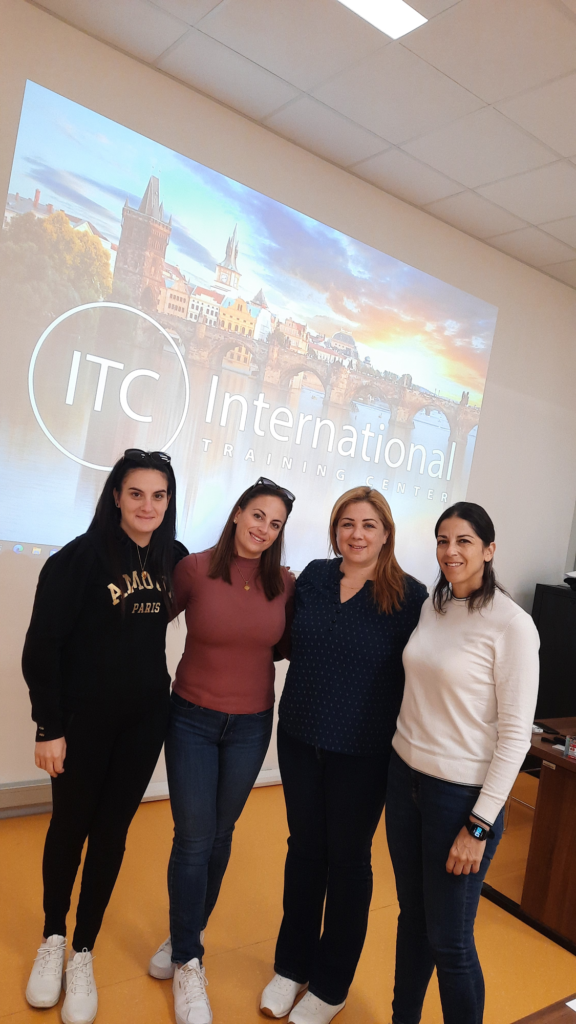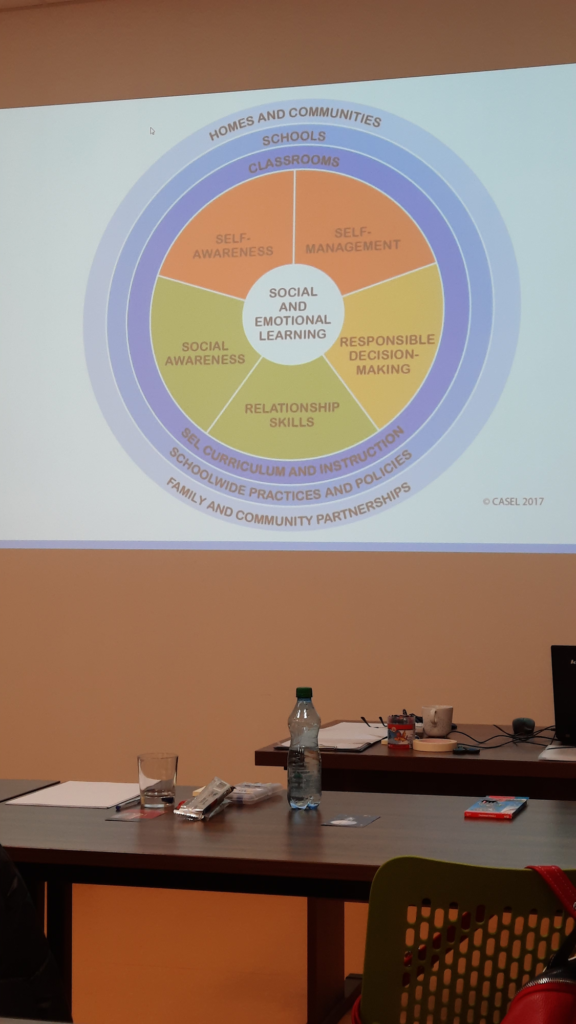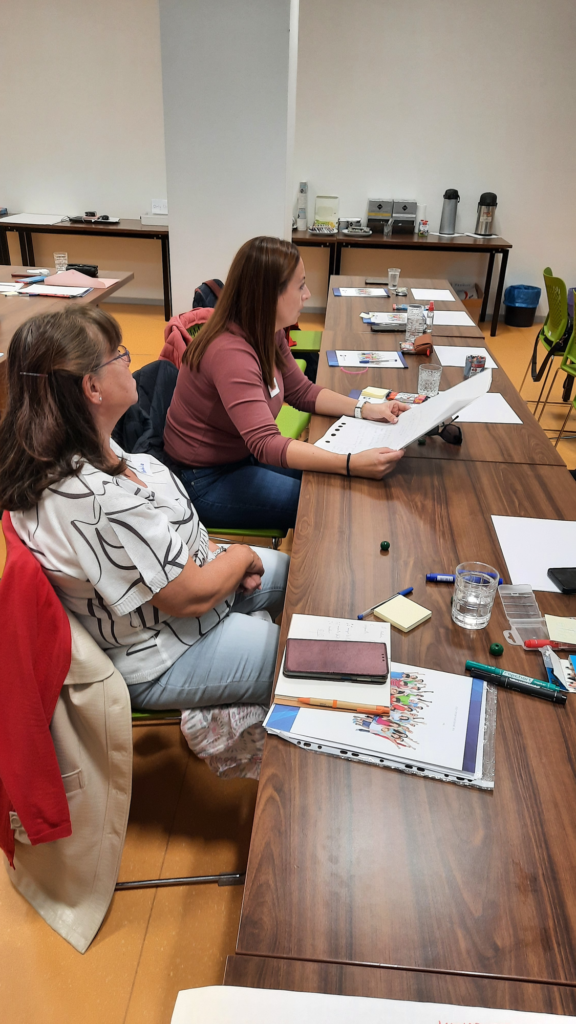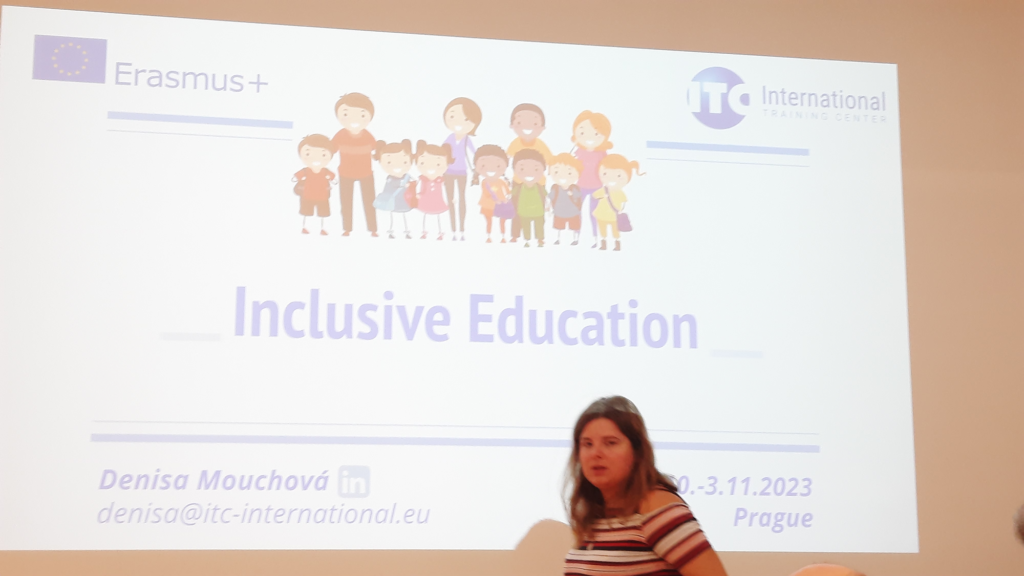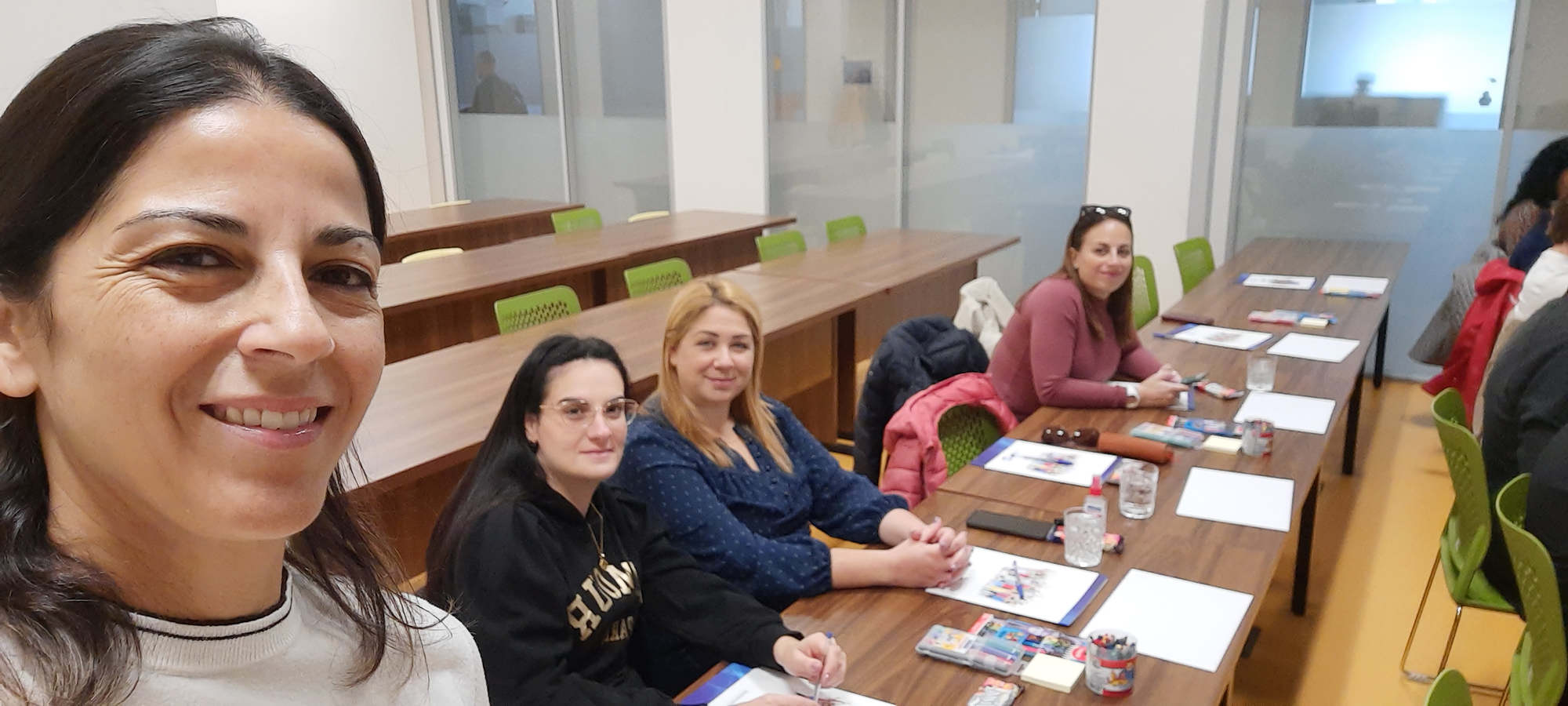
26 Jul The Erasmus Inclusive Education Course in Prague
In the heart of Europe, amidst the historic charm of Prague, the Erasmus Inclusive Education Course has emerged as a transformative inspiration for educators committed to fostering diversity and equality. This comprehensive program transcends traditional boundaries, bringing together educators from different corners of the world to examine deep into the multifaceted land of inclusive education.
One of the defining features of the Erasmus Inclusive Education Course in Prague is its emphasis on global collaboration. Educators from diverse cultural, linguistic, and educational backgrounds converge to share their unique perspectives on inclusive education. The course becomes a melting pot of ideas, fostering an environment where educators learn not only from expert facilitators but also from each other.
The course influences the power of collaboration through group work, recognizing that the exchange of ideas among educators is as vital as the theoretical knowledge instructed/ imparted. Working in diverse groups mirrors the inclusive principles the course advocates for in the classroom. Educators collaborate on projects, share experiences, and brainstorm innovative strategies to address the unique needs of every learner.
The Erasmus program in Prague prides itself on offering a rich tapestry of learning strategies drawn from various educational systems worldwide. Participants gain insights into pedagogical approaches, adaptive technologies, and instructional methodologies employed in different countries. This cross-cultural exchange enriches their toolkit, allowing them to tailor their teaching methods to cater to the diverse needs of their students.
A critical aspect of the Erasmus Inclusive Education Course is the exploration of the contrast between integration and inclusion. Educators engage in thoughtful discussions and activities that plunge into the shades of both approaches. The course encourages participants to critically evaluate their teaching practices and embrace inclusive strategies that go beyond mere integration, fostering environments where every student feels a sense of belonging.
Non-violent communication and conflict management take center stage in the Erasmus program. Educators learn to navigate the complexities of classroom dynamics, fostering open and respectful communication. This emphasis on communication skills is not only crucial for resolving conflicts but also for creating a positive and inclusive classroom climate.
The course recognizes the pivotal role of education in shaping not just knowledgeable individuals but responsible citizens. Values and moral education become integral components of the curriculum, guiding educators on teaching a sense of empathy, tolerance, and social responsibility in their students.
Moving beyond conventional grading systems, the Erasmus program in Prague encourages educators to explore holistic methods of student assessment. Participants search into innovative approaches that assess not only academic achievement but also socio-emotional development, fostering a more comprehensive understanding of students’ capabilities.
Understanding that education goes beyond academics, the course places a strong emphasis on psycho-social development. Educators explore strategies to create environments that support students’ emotional well-being, fostering resilience and self-efficacy.
The concept of a positive school climate is woven into the fabric of the Erasmus program. Educators explore strategies to create welcoming and supportive school environments where diversity is celebrated, and every student feels valued and respected.
Recognizing the power of creative expression, the course incorporates drama and art activities into the curriculum. Educators discover how these modalities can be powerful tools for promoting inclusivity, giving students alternative means of communication and self-expression.
The Erasmus program challenges traditional teaching methods by promoting project-based and task-based learning. Educators discover the benefits of these approaches in fostering critical thinking, problem-solving skills, and collaborative learning, ensuring that students are prepared for the challenges of the 21st century.
Acknowledging that learning is interconnected, the course advocates for cross-curricular activities. Educators explore ways to integrate subjects, breaking down disciplinary and providing students with a more holistic and interconnected understanding of the world.
The Erasmus Inclusive Education Course equips educators with the skills to adapt the curriculum to meet the individual needs of diverse learners. This personalized approach ensures that every student, regardless of their abilities, has access to a meaningful and relevant education.
In conclusion, the Erasmus Inclusive Education Course in Prague stands as a form of transformative education. As educators from around the world converge in this picturesque city, they embark on a journey of self-discovery and professional growth. The course’s holistic approach to inclusive education, global collaboration, and practical application ensures that educators are not only well-versed in the theory but are also equipped with the tools to create truly inclusive and empowering classrooms. Prague becomes not just a backdrop but an integral part of this educational journey, enriching the experience and leaving a lasting mark on the educators who pass through its doors.
During the month of October 2023, four Learning Support Educators Ms. Anouska, Ms. Elaine, Ms. Graziella and Ms. Yanika from Immaculate Conception School experienced a learning opportunity in Prague as part of the Erasmus project. Other participants from various countries joined together with the Maltese team to gain more knowledge on how they can make the school environment more inclusive. The course was mainly focused on non-violent communication and conflict management, values and moral education and psychosocial development. During our experience in Prague, we learnt that di erent countries adopt di erent approaches with regards their education system. Bringing all students together in the same group is not enough. Each classroom must provide accommodations that allows equal opportunity to learn. Inclusion creates accessibility both physical and emotional. Integration cannot lead to inclusion unless the school culture is also one of acceptance. When working in groups we noticed that schools abroad do not have LSEs in class, hence this accessibility is all catered for by the teachers. Students diagnosed with down syndrome are cared for by the parents at school instead of an LSE. Children who are diagnosed with severe Autism attend special schools. On the other hand, schools in Malta try to accommodate all learning disabilities according to their respective needs. We also discussed non-violent Communication and Conflict Management. We learnt that feedback should contain specific information rather than generalisation, factual and clear, unprejudiced, and given as soon as possible after completion of work. We tend to give generalised feedback and at times instructions are given in a negative way. We are now focusing more on positive behavioural strategies with our students which is helping us achieve more cooperation. Non-Violent Communication enables safety and trust as it gives children, parents, families, teachers, and school sta the advantage to be heard deeply and experience a community of support. Non-Violent communication is about understanding our and others needs and provides empathy. Conflict management must be targeted from the very first day by setting ground rules. Active listening is crucial to identify a specific issue. Once the issue is identified one must brainstorm and evaluate di erent options. It is crucial to help our students in distinguishing between good choices and bad choices. Through this they can avoid making mistakes that could have serious consequences. Moral evaluation helps to reinforce virtuous values and prompting critical thinking. The focus is on respect for others and is helping us to teach students how to respect the feelings, opinions, and rights of others to cultivate empathy and compassion in the classroom.
During our discussions we all agreed that at times school systems around Europe focus on Integration rather than inclusion. We need to focus more on adapting the curriculum for special needs students to reach their potential, rather than integrating them into our classrooms. We need to help these students feel part of the lesson rather than integrating them only in the classroom. As part of our activities, the tutor read a story to us and as a team we all had to rank the characters of the story in order of the best character in the story to the worst. Everyone had di erent opinions of this, which in turn helped us understand that to actually take decisions (DECIDE) you need to Define the problem, Explore the alternatives, Consider the consequences, Identify your values, Decide and take action, Evaluate your decision. Finally, this helped us to consider all aspects when taking certain decisions at school that would impact our day to day lives at school with our students.


